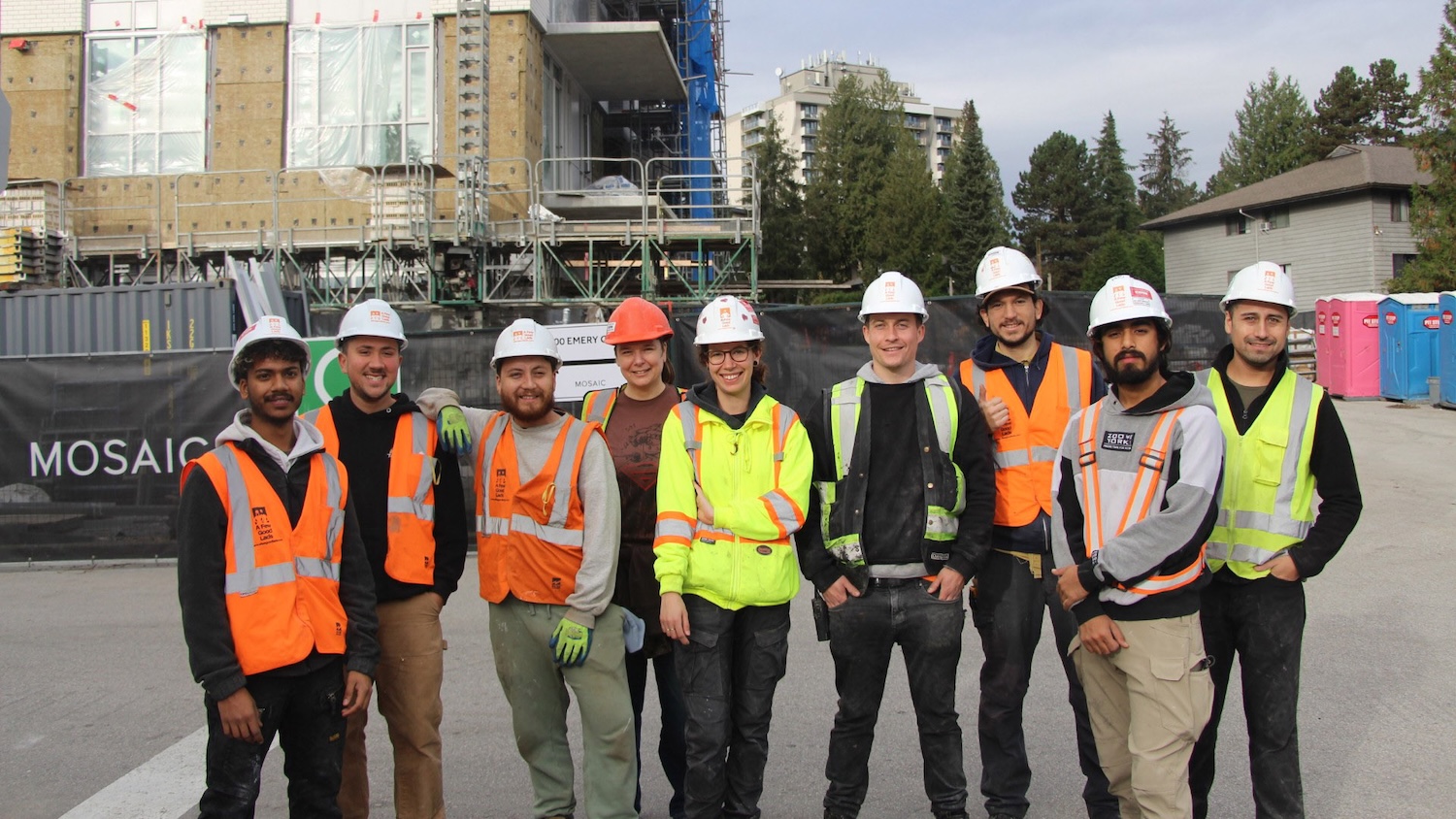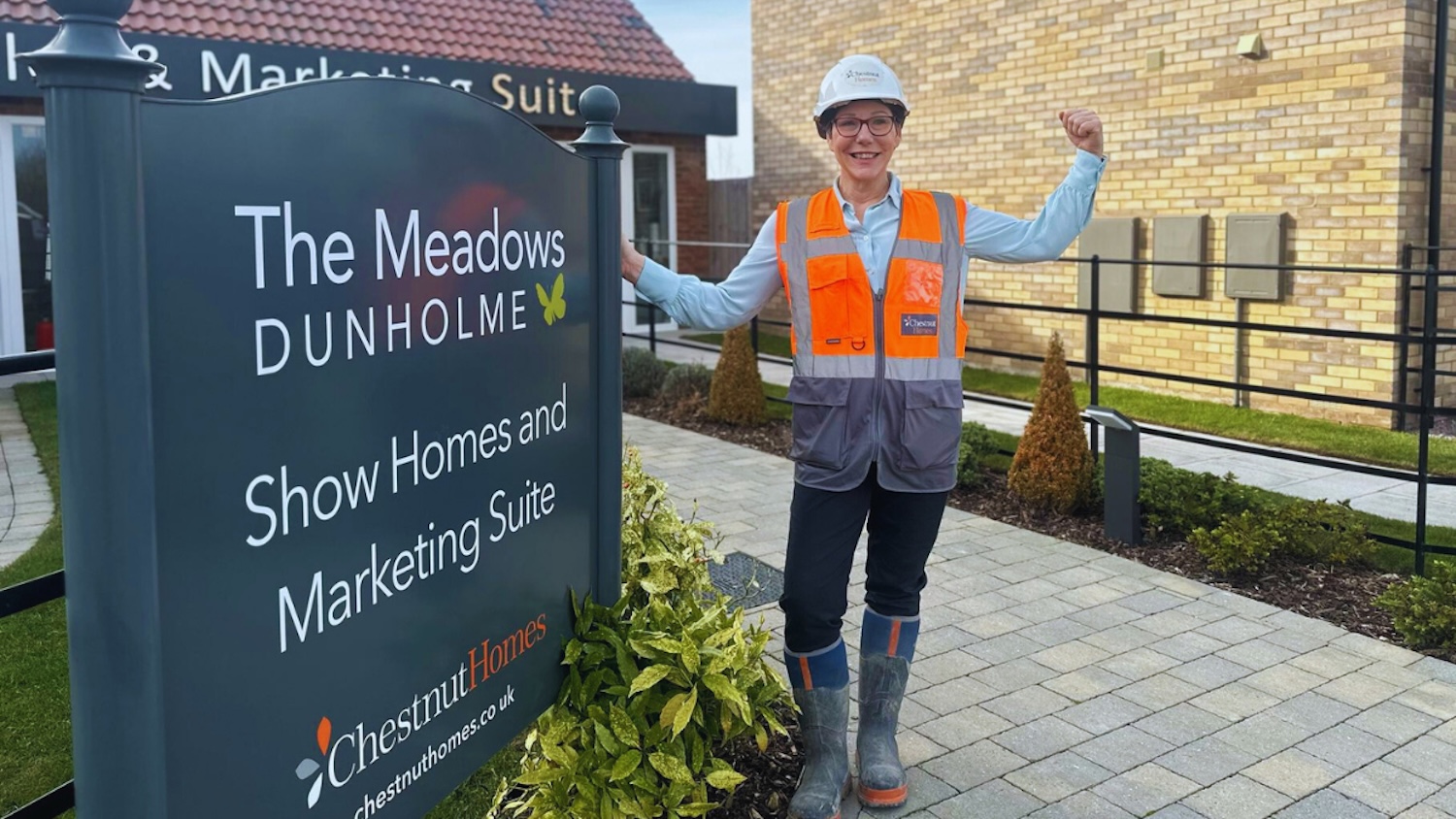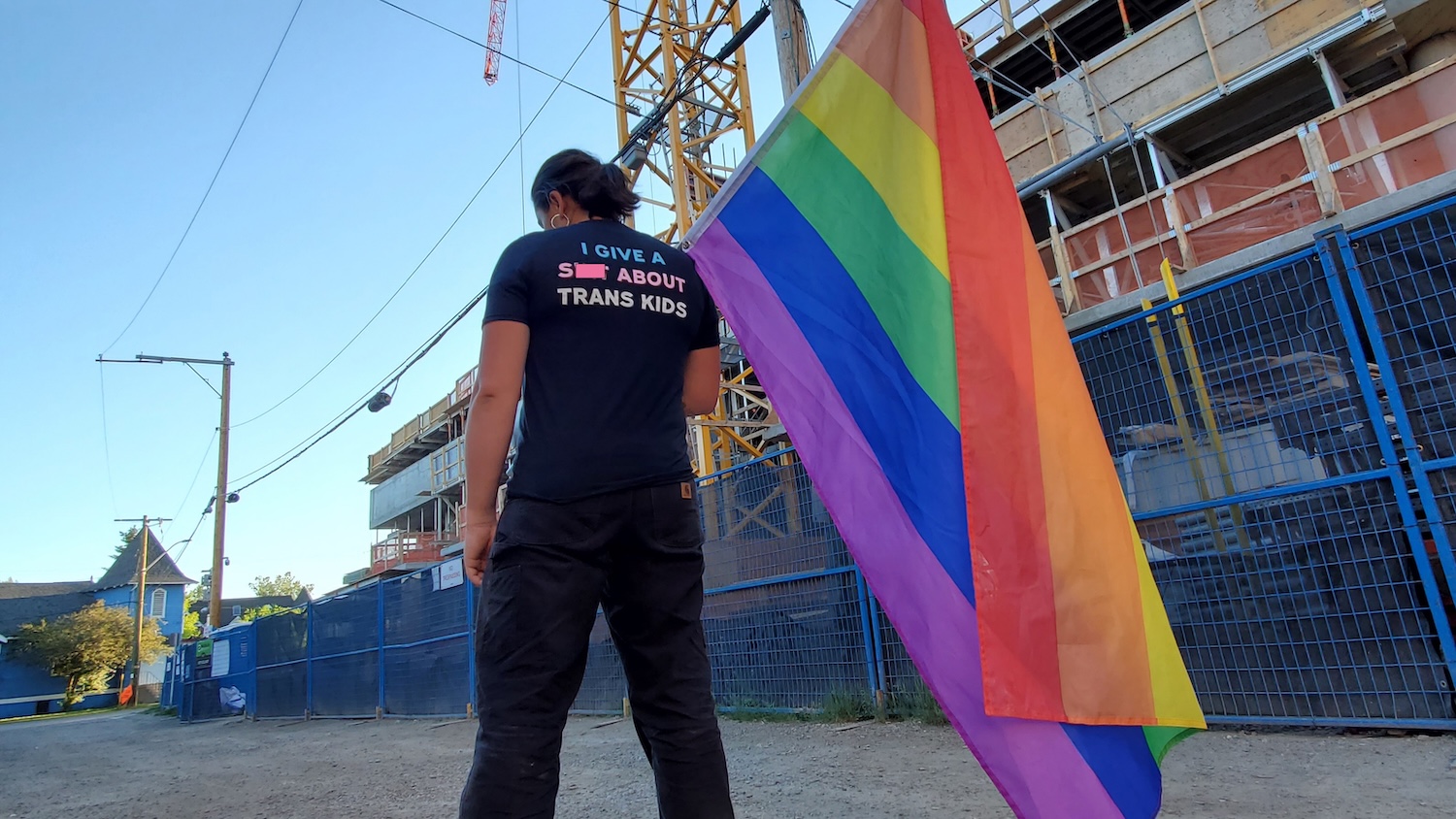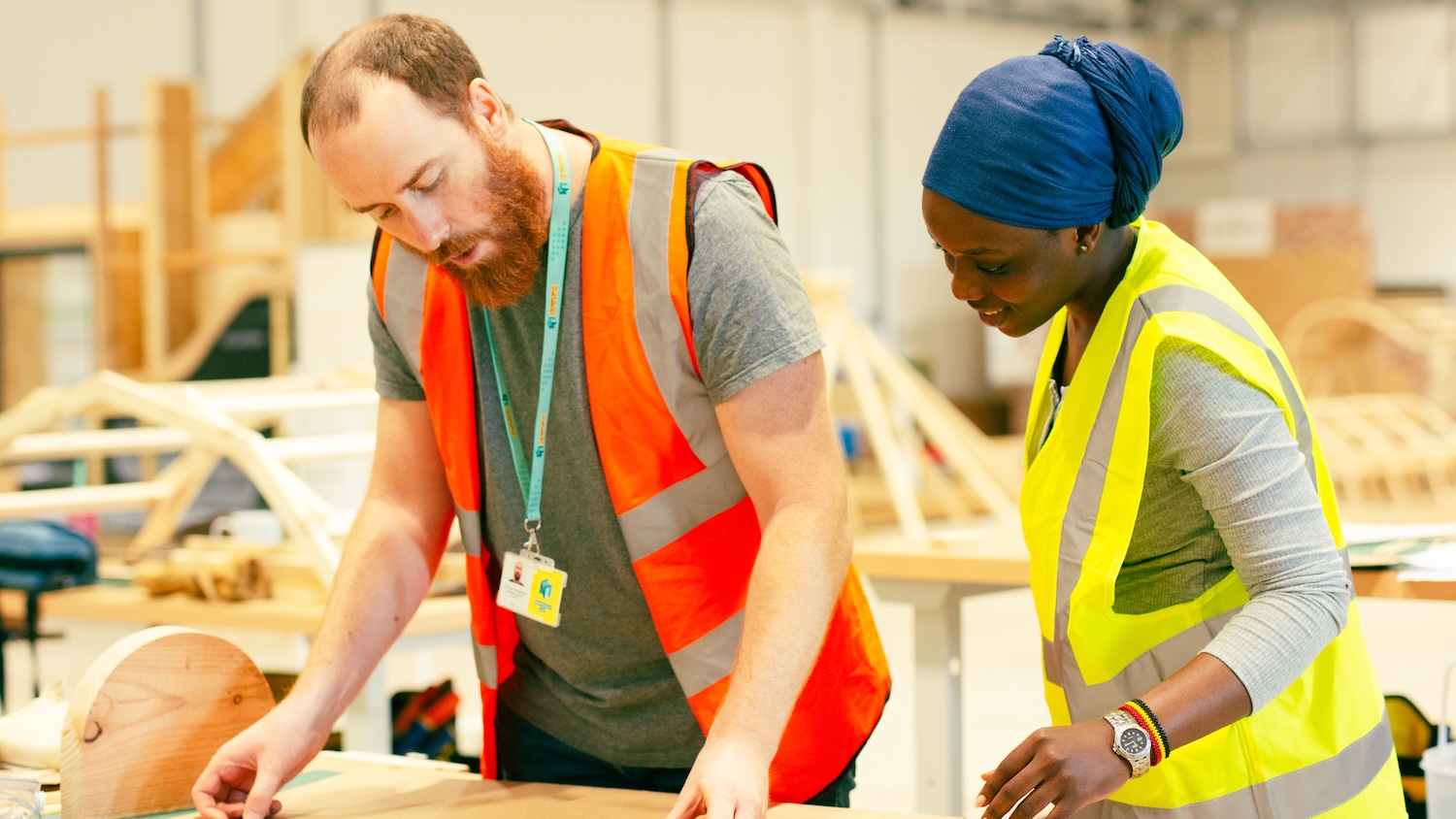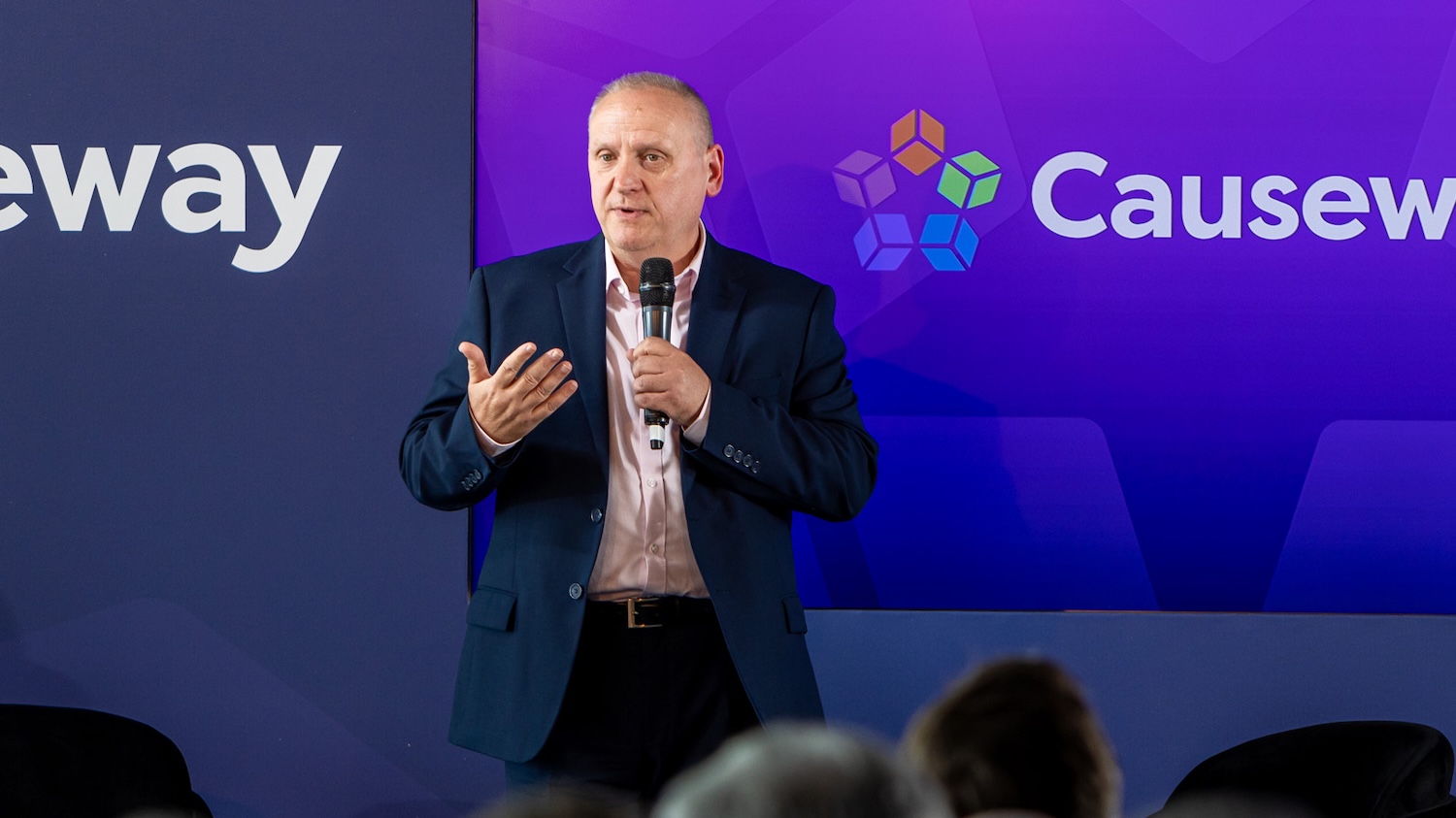
How to support financial wellbeing in the workplace
Ryan Briggs, founder of FinWELL, joins the company’s training lead Justine Piercy to discuss the importance of financial wellbeing and why construction employers have an important role to play
What was your route into the world of financial wellbeing?
Justine Piercy (JP): My background is in banking and finance. I worked for a major high-street bank for 26 years, but I went through a horrible experience about five years ago, when my husband and I were both made redundant on the same day.
That experience propelled me into the world of financial wellbeing. It forced me to take a long, hard look at my skills, evaluate my knowledge and experience and decide how I could turn that into something new.
I started doing some training delivery for The Money Charity, mainly through schools and young adults, trying to get financial education into the curriculum.
Then, during the pandemic, I realised there were a lot of workplaces that needed to do more to support colleagues with financial wellbeing.
It can be the pillar of wellbeing that’s the trickiest to address – employers often don’t know where to start.
Ryan Briggs (RB): My background is also in financial services. I’m a qualified adviser but about eight years ago, I was invited to design and deliver workshops and training for a business with about 1,000 employees.
I realised that’s what I loved – helping people to understand a lot of the steps before financial advice is needed, the things they don’t learn at school.
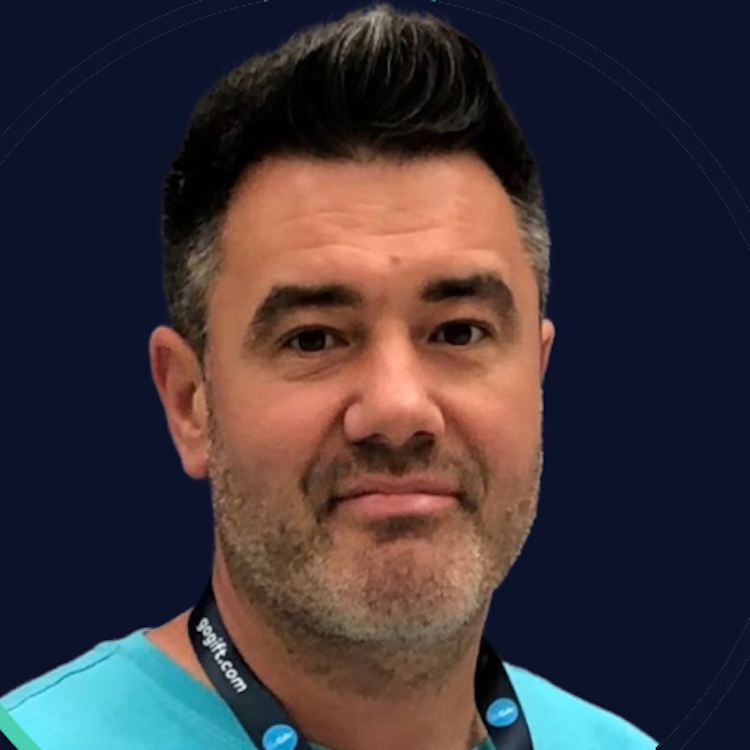
You can have all the money in the world and your relationship with it or psychology around money can be awful, which leads to even more anxiety, stress and pressure. This issue doesn’t discriminate
Financial advice is a key component of financial wellbeing, but it’s just one stage along someone’s journey.
The impact of the pandemic and the cost of living crisis has highlighted mental health. Companies are realising that they need to be serious about it.
However, we’re very much at the start of this journey – there is a lot more work to be done.
For some, ‘financial wellbeing’ is a new concept, so how do you define it?
JP: That’s one of the first things we talk through when we’re working with employers.
When we ask that question at the start of our sessions, we get responses like: “It’s about being in control”, “It’s about peace of mind” or “It’s about being able to cope when things go wrong”.
It is all of those things, but our philosophy is about equipping people with the right habits, skills, behaviours, knowledge and understanding to make the most of what they have got.
Often, people believe it’s just about pay. But it’s not. It’s about what we do with what we’ve got and the decisions that we make.
We’re focused on empowering people to understand what financial wellbeing means to them, because the priorities will be different for different people. Our role is to support them along that journey.
Through FinWELL, we provide a range of solutions that are focused on bringing financial wellbeing to the forefront.
That’s our mission – we want to help support both employers and employees in any sector, large or small.
Many people are struggling financially at the moment. We are also seeing some unique challenges in different industries, so we’ve got to come up with different ways of helping colleagues, particularly those who are typically hard to reach.
What are some of the challenges you’re seeing in the construction industry?
JP: There are some unique challenges that impact the construction industry. For example, many people have variable incomes or work under short-term contracts.
There are a lot of people sitting on big balances in their bank accounts because they don’t know what to do with their pension or how they should use it as an emergency fund.
RB: Construction is an area I’m particularly interested in. I used to work in recruitment and construction, so I know the industry well.
I know there are lots of professional bodies and membership organisations that are doing a great job, but there is an opportunity for us to collaborate more.
We need to work together to promote financial wellbeing and the link to mental health and suicide prevention. Construction is a tough one – increased awareness of financial wellbeing is massively needed. The statistics around suicide in the industry are shocking.
What have you learned from working with the construction industry?
RB: We were invited to visit the HS2 project in Birmingham to share the support we can offer the workforce.
We quickly learned the importance of engaging with people face to face, getting onto site and seeing the challenges from their perspective, without a lot of jargon.
We spent a few weeks on site and different sites around Birmingham. We found that short toolbox talks are most effective, or following a health and safety briefing one of our team would link health and safety, mental health and finances.
People could then schedule a one-to-one slot with our team throughout the day.
JP: We learned that trust is very important. We had to make the sessions quick and easily accessible because they didn’t have the time to attend a webinar, they needed content that they could easily access in their own time.
We have also created posters that include a QR code (pictured below). So, if anyone wants more information on how to budget or get to grips with their pension, for example, they can scan the code on their phone and it will direct them to our content, which includes reading resources, video clips and top tips from specialists.
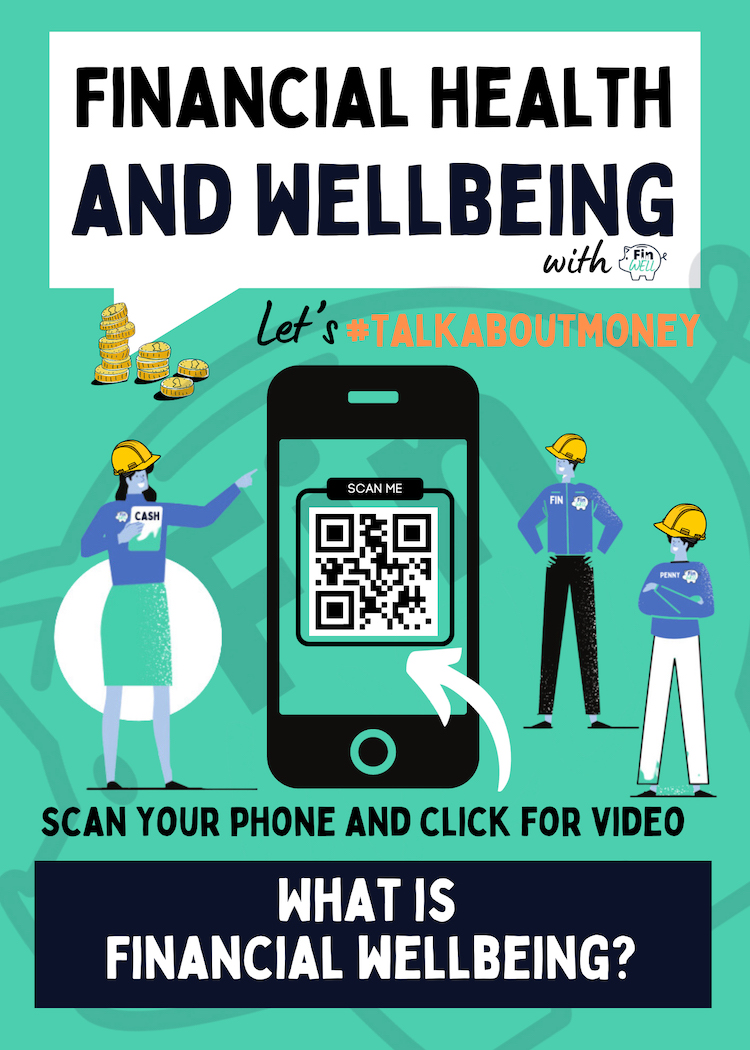
RB: The fundamental drive for FinWELL is showing the link between financial wellbeing, mental health and suicide prevention. As a mental health first-aider, those are the three areas I am most passionate about.
In April, we launched Financial Wellbeing Month. We were thrilled to have R;pple on board as a charity partner, and Mental Health First Aid England as a key partner too.
We’re planning to bring it back next year, but I want to have a real focus on sector-specific categories with collaborative partners in each of the sectors we’re covering.
Through your work promoting financial wellbeing, is there anything you’ve come across that has been particularly surprising?
JP: Nothing ever surprises me in this space. You have to be open minded. There are so many things that people just don’t know. A lot of them admit that they’ve never been taught how to budget, so they are scared because they’ve never done it before.
There is a lot of fear attached to money because we don’t learn about it growing up or when we’re in school.
We recently did a workshop about scams and gambling. For people with a variable income, when that income is high they are likely to spend more and can be drawn to gambling. When that income comes down again, it’s a real challenge.
There is a concerning lack of knowledge across all workplaces and it seeps into everyone’s lives.
Most of us have a story to tell about the things we’ve done and the mistakes we’ve had to learn from along the way. It’s about sharing those experiences and ensuring nobody feels alone.
RB: We’ve seen a lot of things, but the fact that we’re just at the start of this journey shows that many people don’t know what they need or how important this is – and many employers don’t know either.
It is similar to where we were with mental health maybe five or 10 years ago. There are so many misconceptions that we have to tackle.
Financial wellbeing isn’t just about how much you get paid or for those who don’t have a lot of money. It can affect people right across the board.
You can have all the money in the world and your relationship with it or psychology around money can be awful, which leads to even more anxiety, stress and pressure. This issue doesn’t discriminate.

We’re focused on empowering people to understand what financial wellbeing means to them, because the priorities will be different for different people. Our role is to support them along that journey
What advice would you give to employers when it comes to providing better support across the workforce?
JP: With any conversation around money, it’s easy to jump to solutions, but you can’t get to that unless someone trusts you.
So, before we get to the solutions, it’s important to just listen. We have to make sure we’re sitting with someone in their vulnerable space. That’s where mental health training is really important. It’s all about building trust.
RB: The first step with any company that we work with is creating that safe space and cultures that care, where people can talk freely about money.
We have to get people confident and comfortable talking about money. I don’t mean how much money you earn or how much debt you have, but just talking about money. We don’t do it enough, especially in the UK.
Part of our role is to effectively signpost people to support and to provide a platform that allows people to share their stories, including their financial concerns but also messages of hope and inspiration.
We need to remove the fear, so people can open up and access the support they need.
Mental health support and advice for CIOB members, past members and related family is available through CIOB Assist. CIOB, in partnership with Anxiety UK, also provides wellbeing support.
For additional support or advice, contact the Samaritans by calling 116 123. Support is also available via the industry charity Lighthouse Club by calling the support line on 0345 605 1956 or texting HARDHAT to 85258.


